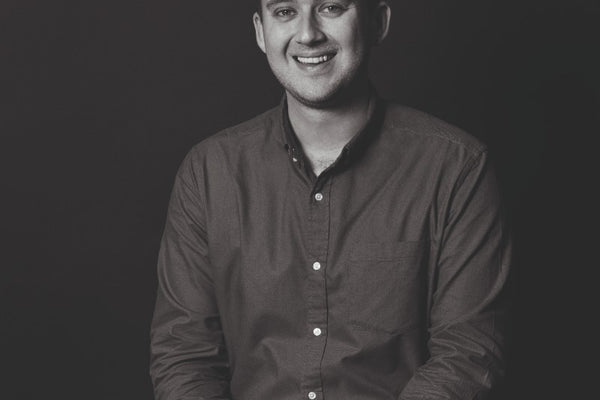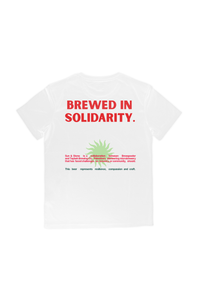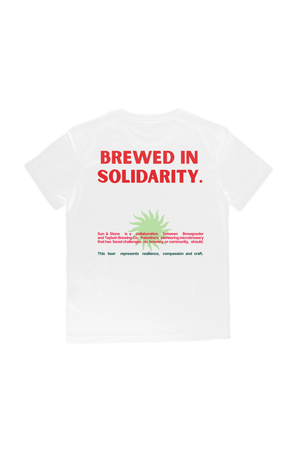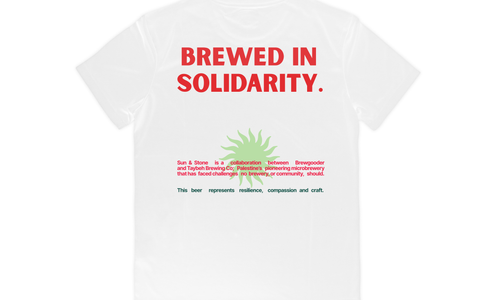B Corporation was founded in 2006 with a vision of a Global Economy that uses business as a force for good. Certified B Corporations are businesses with purpose, having met the highest standards of verified social and environmental performance, public transparency, and legal accountability. B Corps form a community of leaders and drive a global movement of people using business as a force for good. The B Corp certifications helps businesses protect and improve their impact over time. Brewgooder has been a B Corp since 2018 and since then, hundreds of businesses have joined the B Corp mission. One of the latest businesses to achieve B Corp status is Bruichladdich Distillery.
We caught up with Christy, the communications manager at Bruichladdich, to discuss being the latest B Corp certified business in the drinks industry, and the first whisky and gin distillery in Europe to have met these standards after a year of completing the submission process.
Tell us about Bruichladdich?
Bruichladdich distillery was built on the isle of Islay in 1881 by three brothers from a whisky dynasty and wanted to have a distillery that created a light and floral single malt. The distillery was kept within the family for a few decades before it went through a period of “boom and bust” and transferral of ownership. In 1994 the new owners deemed the distillery surplus to requirements and the gates were closed, with the stills lying dormant for 6 years. In 2000, wine merchants Mark Reynier and Simon Coughlin were on the market for a distillery to buy, and were taken in by the charms of Bruichladdich, whose old Victorian equipment remained preserved. Bruichladdich in its current form was resurrected the following year, with Reynier and Coughlin’s knowledge of fine French wine inspiring ideas of terroir and an elevated relationship with ingredients that was pioneering in the whisky world. They focused on natural high provenance ingredients, made connections with farmers and aimed to reconnect the land of Islay with the spirit in the glass in a revolutionary way. Since 2001 we’ve been building on the ethos of connecting with ingredients and focusing on the local community of Islay, which we felt a responsibility to support after our years of closure. We employ 80 people on the island, with a further 23 in Glasgow.
Becoming B Corp certified feels like the 20 years of work to get to this point has paid off and validated that we’ve been going in the right direction.

What influenced your decision to become a B Corp?
The fact that B Corp is a widely recognised global accreditation is important to us.We are grateful to have received many awards within the traditional world of whisky, but we identified more similarities with B Corp businesses that we weren’t seeing in the whisky industry. We are one of the bigger distilleries within Scotch, and while smaller craft distilleries may be limited to making changes, we are fortunate enough to be able to retrofit our actions and infrastructure to think and be more B Corp. We have slightly deeper pockets and a greater ability to invest in these projects - our social conscience and environmental intentions have always been at the forefront of our actions
We had long been conscientious regarding environmental and social impact goals before our B Corp status, and were always continuously working to improve. Being a B Corp will allow us to build on our achievements and not lose momentum; we are a global business and it's the acknowledgement of a global network of like-minded people who are building a more inclusive and sustainable economy. We employ 80 people on the island, work with local farmers and are making continuous steps to improve environmental impact on the island. Now we are in a position to look at what we can do next.

What were the biggest challenges in becoming a B Corp?
The initial challenge was having the courage to go for it, being ready to commit to the process and ready to dedicate a resource to the process to keep commitment and momentum.
It’s one thing doing it, living and breathing ESG responsibility, it’s completely another proving it. By then end of the process Bruichladdich received over one hundred challenges to the B Lab Impact Assessment submission, these challenges required a response within a specific timescale, either by providing further explanation or documentary proof. This all occurred during the early part of the Covid-19 lockdown, with every necessary Bruichladdich stakeholder already fully engaged elsewhere. Also being a subsidiary, there were a number of policies and processes that Bruichladdich adopted, however these couldn’t be provided as evidence, the principles and policies must be Bruichladdich’s and Bruichladdich’s alone.
There have been many challenges in the past and there will be many in the future as we seek to continuously improve our social and environmental impact.
Why is being a B Corp important to you and how does it fit into your mission and business goals?
Bruichladdich was built for the whisky connoisseur and defined by those with a passion for doing things a little differently. We’ve appealed to whisky enthusiasts for a long time, they have stood by us through our years of struggle and we will never turn our backs on them. Yet, as we grow as a business, we seek to attract not only the most passionate of whisky fans, but values led drinkers, and those who have sustainability and a sustainable economy in mind. Becoming a B Corp will allow us better visibility to these purpose conscious drinkers, to enable us to bring a new audience to Bruichladdich who share our goals.

Are there any particular policies or practices you have put in place that you are especially proud of?
This is really hard to pick, can I pick three?!
From my lens as a local growing up on Islay, I didn’t have an idea of what the economy was like and what the challenges were like for the community until I went to the mainland to study and came back again. Our economy can be so fragile, and Bruichladdich has really focused on so many benefits to the local community, defining the best way to make whisky on Islay and earn the Islay name, which is being used a bit liberally by others who are taking most of the process away from the island and preventing local job growth. I’m proud of the way we have kept as much as possible on the island and have been able to employ so many people as the island’s largest private employer. We have naturally grown a work force from ages 19-74, from a diverse set of backgrounds in terms of ethnicity, religion, race and gender, with a highly empowered female management team.
Our green energy commitment is another favourite. On a small island, this has not been easy to achieve, but we are making small steps in the right direction in terms of people being more sustainable. Bruichladdich are leading this charge and putting the infrastructure in place that empowers our community to be more sustainable.
Agriculture – we are one of only two distilleries growing barley locally, working with partner farmers; we work closely with the local community and many different growers, allowing them to have a diverse income. We are also looking to internalise the risk of experimentation by conducting our own barley trials to find more sustainable ways of growing, to find out what works without putting this pressure and expense onto the farmers. Being fully connected with agriculture and the challenges that farmers face and creating a beneficial ecosystem for them is different and empowering, it makes my job easier when you have a business willing to do that.

What learnings did you take from the B Corp evaluation experience that you have implemented into your future business goals?
The B Corp evaluation was insightful, and B Corp will be a guide for us and a validation and means of momentum to continue improving. For us it’s not about seeing where we can score better in a particular category, it’s about identifying what the challenges are locally and what we can do to become more sustainable, transparent and accountable. We have a clear idea of what is right for our own local community and we hope that translates through into a better B Corp score every three years. To us it’s about knowing what works and hoping that the B Corp scoring system ties into that and validates our efforts.
What advice do you have for anyone thinking of becoming a B Corp, and why should they do it?
Coming directly from Douglas our CEO and consultant AJ who completed the form submission:
There is no one process that fits all, no set of steps when followed will enable you to achieve B Corp Certification; there is no methodology to follow; either you have the necessary ethics and values or you don’t.
Look candidly at your business / values / people and consider whether it really is right for you.
If you still believe it Is, run the B Lab Impact Assessment tool, which will allow you to measure and manage your company’s social and environmental impact. If you score less than say 30 or 40, its possibly not for you and may feel like a mountain to climb, but if you score more than 40 it's probably worth pushing forwards.
Finally - have the courage of conviction to go for it!

Check out Bruichladdich Distillery at https://www.bruichladdich.com/










